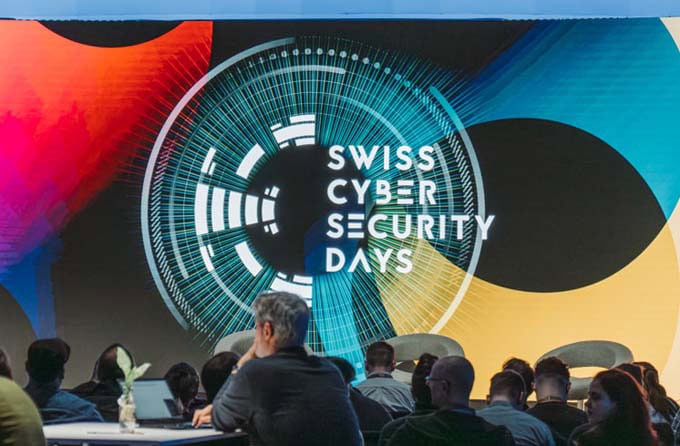4th Digital Economic Forum 2018: Artificial Intelligence vs.
The 4th Digital Economic Forum 2018 (DEF) focused on various aspects and perspectives on Artificial Intelligence and technology networks. Experienced speakers spoke about the effects of digitalization on humans. The expert audience received exciting approaches and inputs for future applications.

At the 4th Digital Economic Forum 2018 one thing was clear: digitisation is now the norm. However, the focus of innovation must be on people and society. Lukas Sieber, Co-Founder of Mindfire & Executive Director North America Greater Zurich Area (GZA), emphasized at the larger event that the world has become "high" on blockchain and crypto in the last few years.
But one should not be blinded, most of it is "junk". Together with his co-founder Pascal Kaufmann, Sieber presented the recently published white paper of Mindfire, a non-profit project that aims to decode the human brain with the 100 most intelligent people in the coming years. Mindfire was founded to enable Switzerland to take the lead in the field of AI and not to leave the development to private or corporate entities.
The results of the project should then be made generally available and corresponding licenses for the innovative inputs of the participants should be refinanced via IOC (block chain/token) in a value-added manner.
Bank heavily dependent on AI
Matthias Plattner, Head Technology & Platform Innovation - Global Financial Intermediaries UBS AG, expected that the banking business will be heavily dependent on so-called "augmented" technologies in the future. He said it was necessary to understand the risks and exploit the opportunities accordingly in order to be able to provide people with comprehensive and, above all, trustworthy advice. The topic of trust was then taken up by Karsten Stampa, COO/CFO Healthbank Innovation AG:
"Without trust, a lot of potential in digital health is wasted," said Stampa. Digital Health could bring an incredible number of benefits based on "Live Data of Real Live". However, he added that if we have to move away from closed systems and strengthen data protection for the user himself, then trust will also work.
Watch out for the Darknet and 007!
The Dane Hans Ulrik Staehr, Founder MarketScape, Denmark and Co-founder Munit.io, gave an impressive insight into illegal processes and business (drugs, weapons, cybercrime) in hidden darknet with a combination of crypto assets and the TOR browser. Darknet is a threat, but also an opportunity to detect criminal processes and criminal psychology.
In an effective presentation, profiler Suzanne Grieger-Langer explained how to find the 007 types and how to avoid the 08.15 types. The most important resource today is knowledge. Communication and cooperation on a higher level is digital today. The (00)7 skills of orientation; decision; focus; discipline; attentiveness; fitting and individuality make up "Homo Deus", the leader.
Andrew Garrihy, Chief Marketing Officer Consumer Business, Western Europe of the Chinese technology company Huawei presented his company and its understanding of Artificial Intelligence (AI). "We believe that AI must serve mankind," said Andrew Gar-rihy. It should help to enhance the potential of the human brain.
"At some point, machines will overtake us in a materialistic sense", predicted Prof. Joachim Buhmann of ETH Zurich. The goal would be self-learning algorithms that explore reality. Patrick Schraut, Vice President Consulting Europe at NTT Security, saw IT security on its way from a niche existence to a business driver and part of a company's value chain. He said that IT security was thus becoming a competitive advantage and a success factor at the same time.
Artificial neural networks change the world The Deep Learning Engineer from NVIDIA LTD, Adam Grzywaczewski impressed the audience with his presentation on "Demystifying Artificial Intelligence". With ever increasing amounts of data, eminently improved computer performance and their networking, artificial neural networks with high application potential are possible today. Examples are autonomous vehicles, better recognition of diseases or smart robots, explained Grzywaczewski.
These artificial neural networks would change economy and society. In contrast, Thomas Asger Hansen, Senior Manager, Big Data, AI & IoT Lab, Grundfos A/S, estimated that AI should be used to increase human performance and must be implemented through an "intelligent system" that orchestrates a variety of paradigms rather than relying on a single paradigm.
"Our vision is to simplify and automate maintenance as much as possible - even for complex systems - so that even laymen can safely perform a number of complex tasks," Hansen explained.
http://www.digitaleconomicforum.ch









